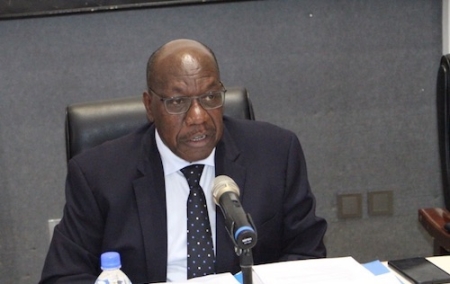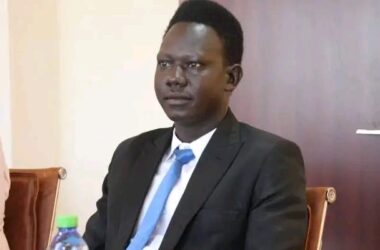By Amb. Maj Gen (rtd) Charles Tai Gituai, CBS
Today, 12 September 2023, we mark five years since the Revitalised Agreement on the Resolution of the Conflict in the Republic of South Sudan (R-ARCSS) was signed, ending years of internal armed conflict between the warring parties.
Five years of relative peace is a commendable achievement, for which the people of South Sudan and the Parties to the Agreement, deserve to be congratulated. The implementation of the Agreement has been beset by challenges but the Parties to the R-ARCSS have stayed the course of peace and now, in around 15 months, elections are expected to be held for the first time in the Republic of South Sudan, since it became an independent country in 2011.
Since September 2018, some progress has been made in the implementation of the R-ARCSS. For instance, contention about the number of states and their boundaries was resolved; the R-ARCSS was incorporated into the Transitional Constitution of the Republic of South Sudan, 2011 (as amended); the structures of the executive and legislative arms of the unity government have been established at all levels of government and have been functioning since February 2020. Further, legal, judicial, security, institutional, economic and financial management reforms have been initiated, and the processes are ongoing. Legislation for two transitional justice mechanisms have been drafted and the one which governs the making of the permanent constitution was enacted. Moreover, the Permanent Ceasefire has held since the signing of the peace deal and over half of the Necessary Unified Forces (NUF) have graduated.
Notwithstanding the progress made so far, the implementation of the R-ARCSS has been slow with many of its provisions yet to be implemented. These factors necessitated the Parties to extend the Agreement three different times, including the most recent one being for 24 months, effective February 2022 to February 2025.
The rationale for the extensions were such that they would enable the Parties to accomplish those tasks which they had failed to implement on time. As for the Roadmap, which was developed and agreed to by the Parties themselves, expectations were high that they would implement its provisions in letter and spirit. However, we have observed delays in its implementation including some of the critical tasks.
Some pieces of legislations have been assented to into law and yet their operationalisation are still pending. For instance, the RTGoNU has not reconstituted the Political Parties Council, responsible for the registration of political parties, nor have they established the institutions responsible for the making of the permanent constitution. Furthermore, no unified forces have been deployed to provide security, and the humanitarian situation remains dire. The envisaged economic reforms have been slow and none of the transitional justice mechanisms are in place. Similarly, the constitution-making process is delayed despite enactment of its legislation over eight months ago.
Time and again, RJMEC has called on the RTGoNU to redouble its efforts and focus on implementing all pending tasks within the scheduled timelines. In particular, elections related tasks that remain outstanding include, among others, the making of the permanent constitution, enactment of the National Elections Bill, reconstitution of the National Elections Commission, establishment of elections management structures at the sub-national levels, and the redeployment of the Necessary Unified Forces.
Additionally, there have been recurring challenges throughout the five-year period, such as lack of funding and insufficient political will and trust between the leadership of the parties. Also, the implementation of the Agreement has been hampered by cyclical inter-communal conflicts, capacity gaps and the dire humanitarian situation exacerbated by, reduced funding, natural calamities such as flooding and the security situation in the Sudan.
As we look back at the achievements of the last five years, it is appropriate to be thankful for the relative peace South Sudan is enjoying, but likewise we cannot ignore the growing sense of concern at how much remains to be done ahead of elections at the end of next year.
The R-ARCSS is a transformative framework that offers tremendous opportunity for lasting peace in South Sudan. Therefore, it is important that the Parties to the Agreement press ahead with the implementation of the aforementioned critical pending tasks. At the same time, it is essential to safeguard the political and civic spaces to create an enabling environment for the conduct of free, fair and credible elections, come December 2024.
In doing so, the country’s leadership will bring peace dividends to all its diverse communities, living together in what the preamble to the Peace Agreement refers to, as a “united, peaceful and prosperous society based on justice, equality, respect for human rights and the rule of law.” RJMEC stands with the people of South Sudan in their quest for lasting peace and will continue to deliver on its mandate.
The author is the Chairperson of the Reconstituted Joint Monitoring and Evaluation Commission (RJMEC)



